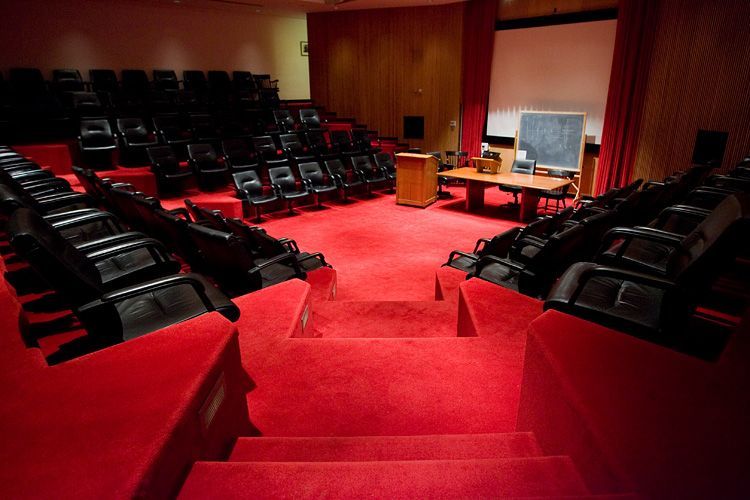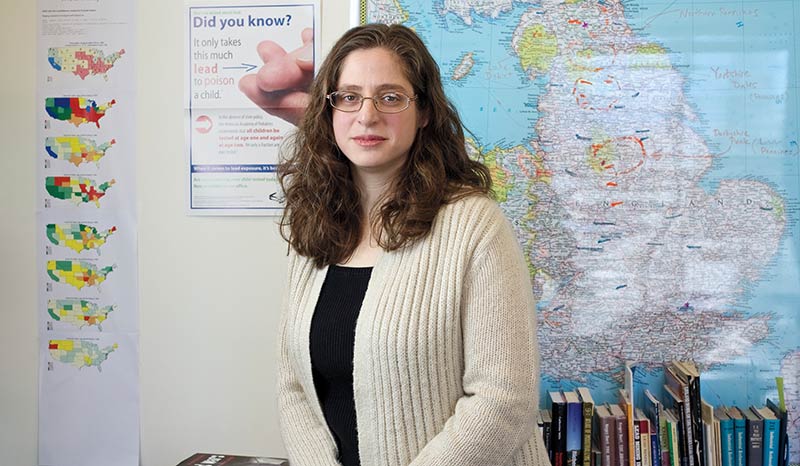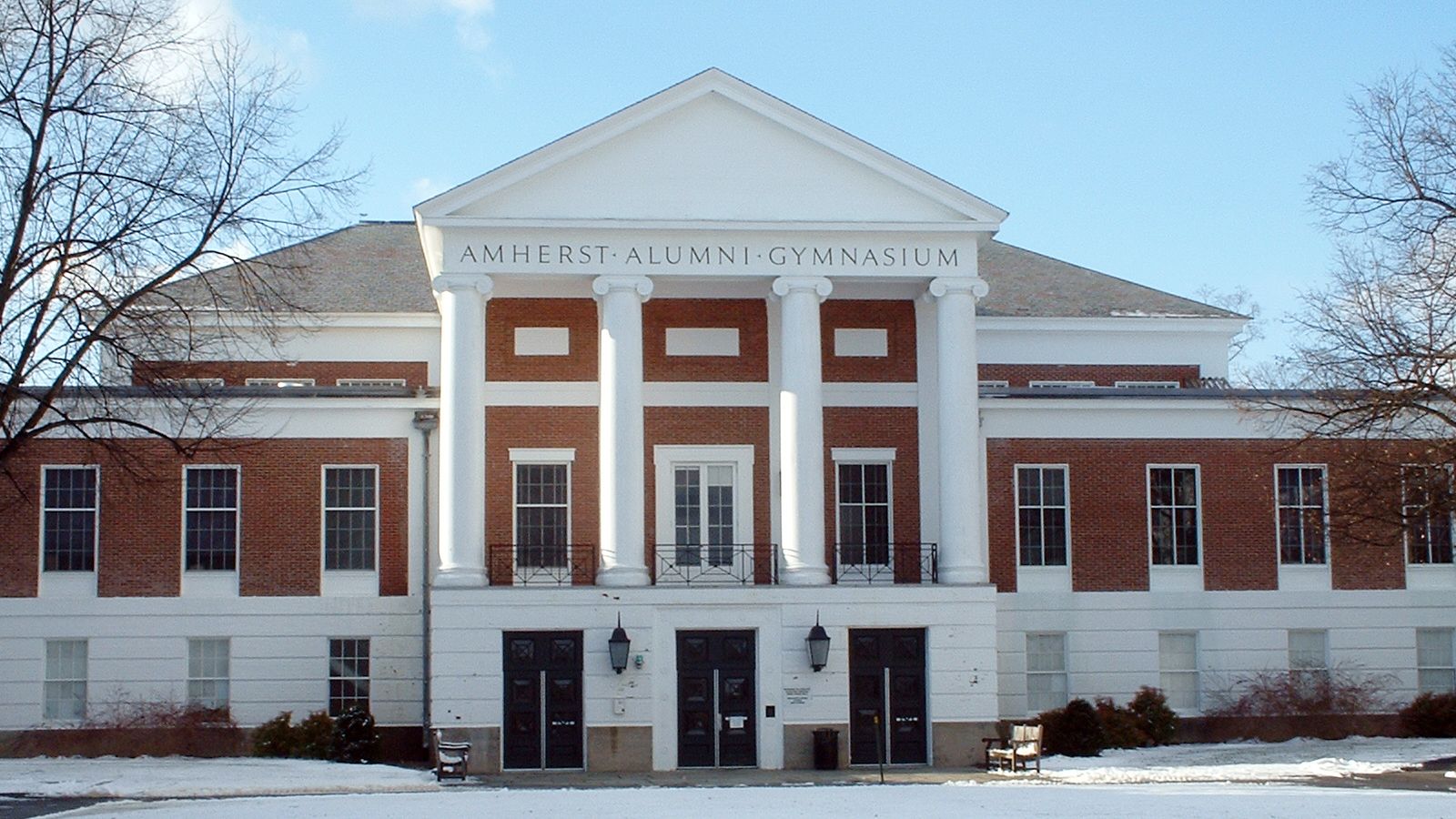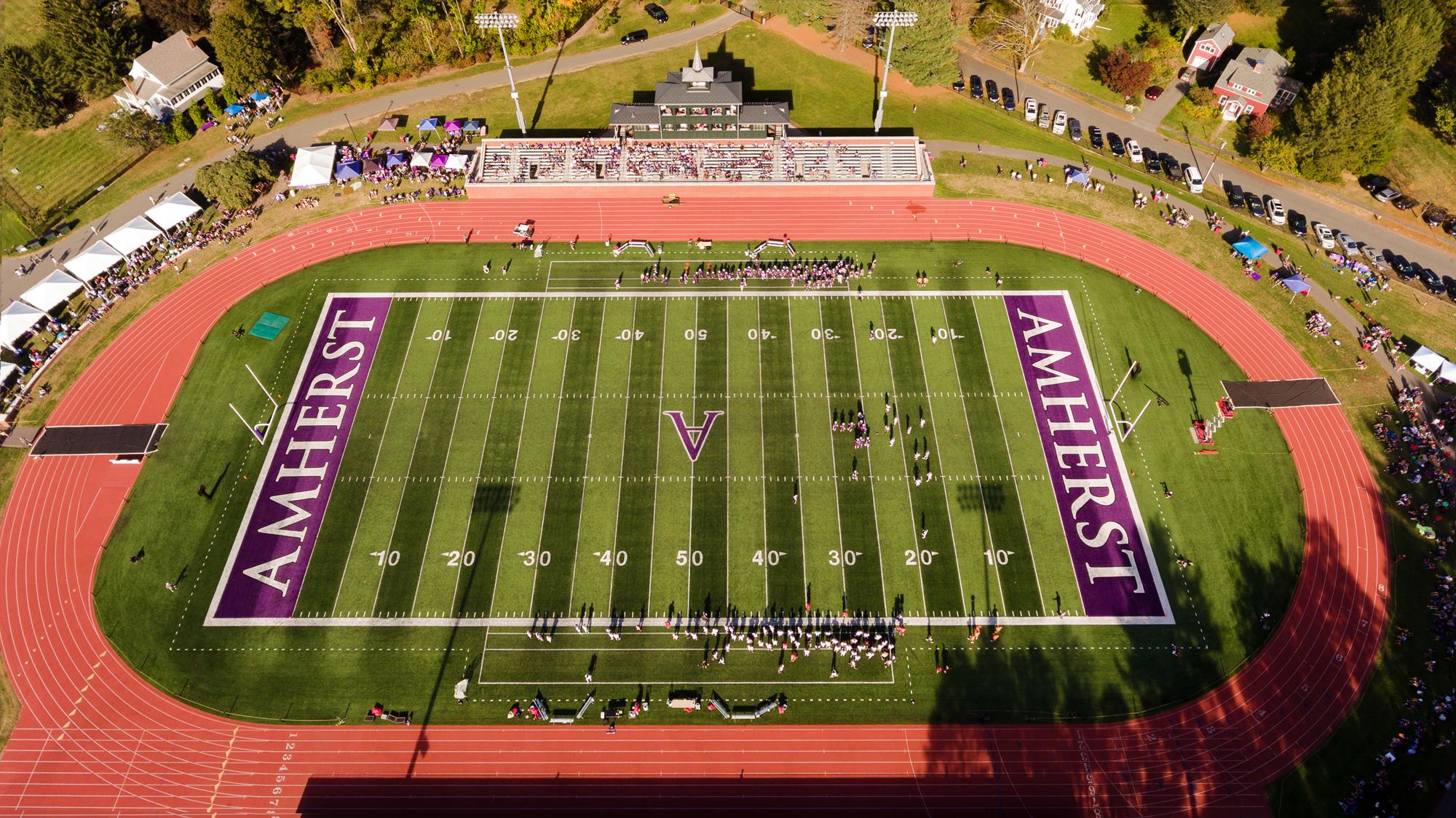Faculty Vote To Release, Discuss Data on Athletic Recruitment Policies
In response to the Supreme Court’s overruling of affirmative action, faculty urges for more transparency around athletic admissions.

The faculty voted 105-47 at their regular meeting on Monday to release data on athletic recruitment and hold a discussion on the potential inequities of the policy. This will be the first public evaluation of the athletic recruitment policy since 2016.
The motion was introduced by Professor of Economics Jessica Reyes several minutes into President Michael Elliott’s opening remarks, after he reflected on the Supreme Court’s overturning of affirmative action this June.
Reyes framed the motion as a necessary response to the ruling, citing data from Amherst and other peer institutions to suggest that athletic recruitment favored wealthy white applicants, who are more likely to have the time and resources to excel in sports.
“The demise of affirmative action poses an existential threat to a vibrant, diverse, and inclusive liberal arts institution,” Reyes said. “To lament this terrible event, and simultaneously to continue athletic admissions that preference rich white people, is racist.”
The motion to discuss athletic recruitment policies was voted on by secret ballot and included a provision for the upcoming discussion to be chaired by “an impartial member of the faculty rather than the Provost.” The date of the discussion remains to be determined.
In justifying her intervention, Reyes cited the Faculty Handbook, which states the faculty “have the power and the duty to fix the requirements of admission,” subject to the reserve power of trustees.
Under the current policy, high school athletes may be recruited to apply to Amherst by coaches as early as their sophomore years. Coaches then classify these applicants as either “Athletic Factors” or “Coded Athletes” for the admissions officers.
“Athletic Factors” are extraordinary athletes who are given “substantial” preference in the admissions process, and total 67 admits per year. “Coded” applicants are skilled athletes who also rank highly academically, and are admitted to the college at a higher rate than other academically-comparable applicants. “Coded” admits number between 60 and 90 per year. Recruited athletes represent the overwhelming majority of Amherst athletes, with around only 20 walk-ons per year.

These numbers come from the 2016 Diver II Report, a review of athletics commissioned by President Biddy Martin in the fall of 2014. The original Diver Report was conducted in 2002, and recommended a review every three to five years. An updated review has yet to take place.
The 2016 report indicated that 73 percent of college athletes in the 2011-2015 cohort were white, as opposed to 35 percent of non-athletes. 2 to 6 percent of athletes were low-income (among women’s and men’s teams, respectively) versus 31 percent of non-athletes.
In her remarks, Reyes emphasized that this disparity greatly impedes nonathlete students of color’s belonging and sense of safety on campus. “BIPOC folks … arrive at and must make their way in a place that is deeply shaped by white privilege, male privilege, and economic privilege,” Reyes wrote reiterated in a statement to The Student. “I personally see no way to improve the campus culture towards belonging and inclusion … without dealing with athletic admissions.”
In the class of 2026, the share of recruited athletes of color had risen to 42 percent, according to a figure cited at the meeting and confirmed by The Student with the Office of Admissions. In 2021, the athletics department released a DEI strategic plan in which, among other points, they committed to “recruit and retain student-athletes from groups that have been historically underrepresented” and to “increase the diversity of each teams’ roster.”
Sheila Jaswal, professor of chemistry and faculty equity and inclusion officer, responded to Reyes and called attention to the efforts of the newly-appointed faculty athletic representative, Professor of Sociology Leah Schmalzbauer, to facilitate discussion on this issue and other DEI concerns. Jaswal cautioned against a “unilateral” decision by the faculty and the exclusion of athletic department perspectives.
“I personally don’t think faculty alone hold the expertise, awareness of the whole picture, and certainly not the moral high ground on how Amherst should constitute itself as a community,” Jaswal wrote in a statement to The Student.

“The fact that we have 42 percent student athletes of color at Amherst is an incredible accomplishment that speaks to the fact that our athletics colleagues are equally committed partners to faculty and administration in addressing the present-day consequences of historical exclusion of many groups.”
However, Reyes held that the issue was inherent to the recruitment system, rather than something that could be amended through reform.
Professor of American Studies Robert Hayashi’s current research examines youth sports in America, and he spoke up during the meeting to second Reyes’s skepticism toward athletic recruitment. “Schools like Amherst can and do diligently work to recruit diverse athletes, but the fundamental problem is the pipeline itself, shaped by the entrenched social, economic, and geographic segmentation of society,” he wrote in a message to The Student.
Responding to Reyes’ claims more broadly, Schmalzbauer defended the work that the athletics department has done to promote diversity on campus and cautioned against disowning the college’s athletics as inherently upholding racist structures. “It’s unfair to place the blame for large-scale, long-standing structures of inequality and exclusion in the United States on the shoulders of coaches and staff at Amherst who are working so hard to make our campus more diverse and just community,” Schmalzbauer wrote.
Reyes added that the administration has continued to resist an impartial review of the policy and has an “obfuscating and athletics-prioritizing mode of operation.”
Professor of Geology Tekla Harms raised concerns that the issue was too vague to discuss without more detailed data from the Office of Admissions about the demographic makeup of recruited athletes and their differential acceptance rates compared to non-recruited-athletes.
Excluding the 2016 report, the figures Reyes cited came from Harvard, as reported in Students For Fair Admissions v. Harvard.
“Why am I using Harvard data and not Amherst data? Because, in defiance of the faculty handbook requirements, Amherst College admissions and FCAFA [Faculty Committee on Admissions and Financial Aid] have declined, refused, just not provided transparency,” Reyes said.
She reported that her requests for these figures have been repeatedly “bureaucratically tangled”.

In 2018, an Ad Hoc Committee on Athletics recommended that the FCAFA “improve data collection about the place of athletics in admissions.” Professor of Sociology and Chair of the FCAFA Ron Lembo acknowledged in a statement to The Student that this recommendation has not been fulfilled.
“One of my goals for this year will be to explore if and how we can respond to the Ad Hoc Committee’s call,” Lembo wrote.
“I value very much the faculty’s role in shaping admissions policy, and I believe that having additional data will help to make the decision-making process that much more transparent,” Lembo added.
Following Harms’ remark, the faculty amended the motion to include a provision for the release of data to facilitate the planned discussion.
Dean of Admission and Financial Aid Matt McGann wrote in a statement to The Student that the admissions office has “always made data available to faculty governance bodies,” including the FCAFA.
McGann went on to explain that they “do not publicly make available detailed admission data about specific subgroups of our students because it is antithetical to our admission philosophy of looking at every student as a complete and complex individual.”
The Student also asked McGann for his thoughts on the faculty motion. “I am glad that faculty want to learn more about these issues and to participate in discussing the future of admission to the College,” McGann said.
Reyes hopes that the college can emerge as a leader amid what she sees as a dying system. Ultimately, she advocates for dispensing with any “separate process by which students who participate in athletics are given special treatment months (even years) earlier and considered by different means and different committees.”
“It is my personal impression that athletic admissions as we know them are doomed: this particular component of the privilegocracy is being brought into the light, and I really don’t see how it can survive that harsh glare,” she said. “As I see it, it’s only a question of whether Amherst wants to lead or lag.”





Comments ()